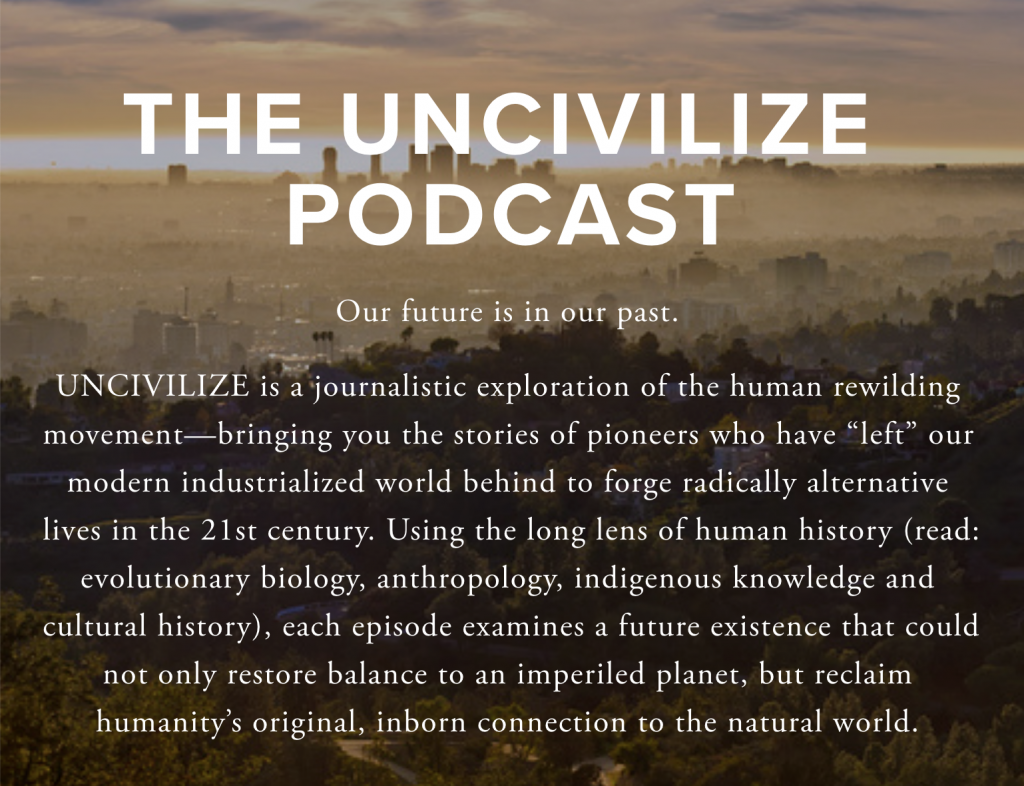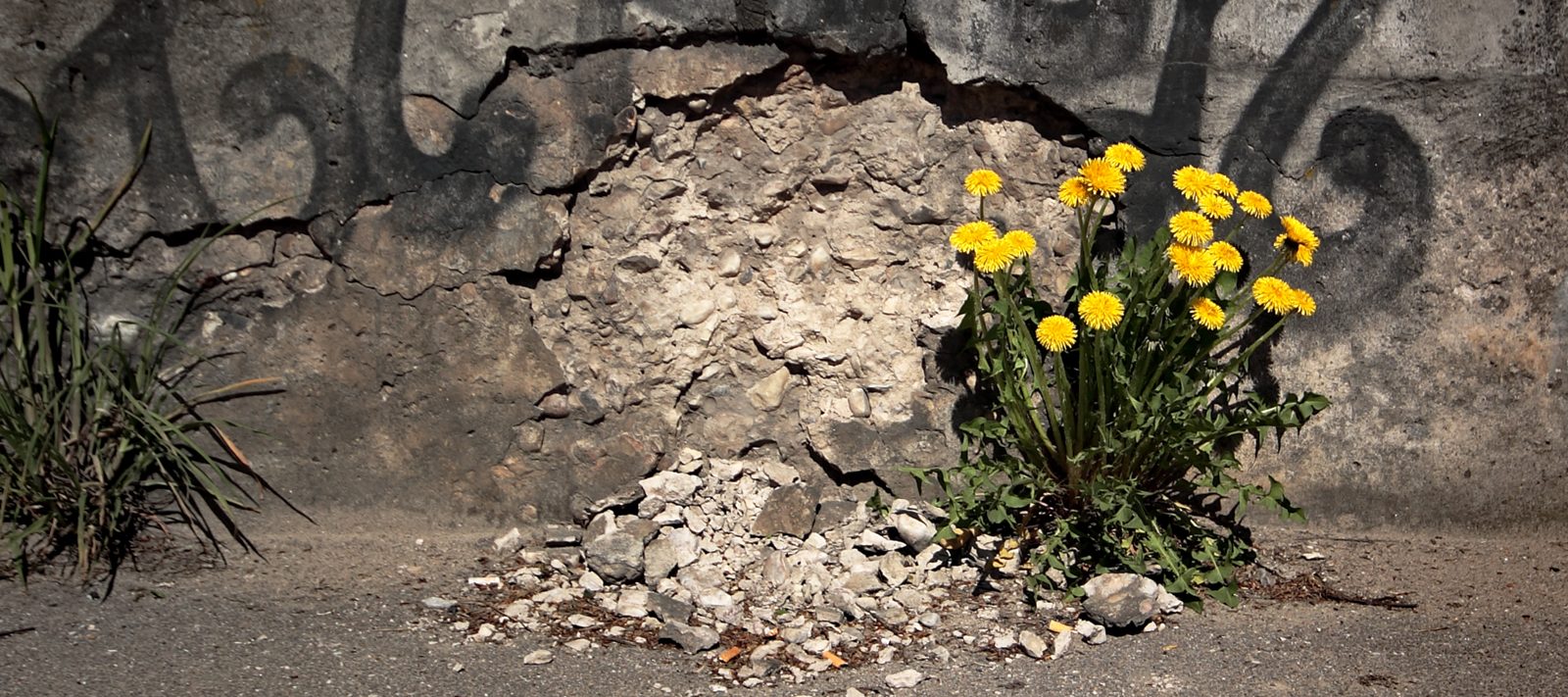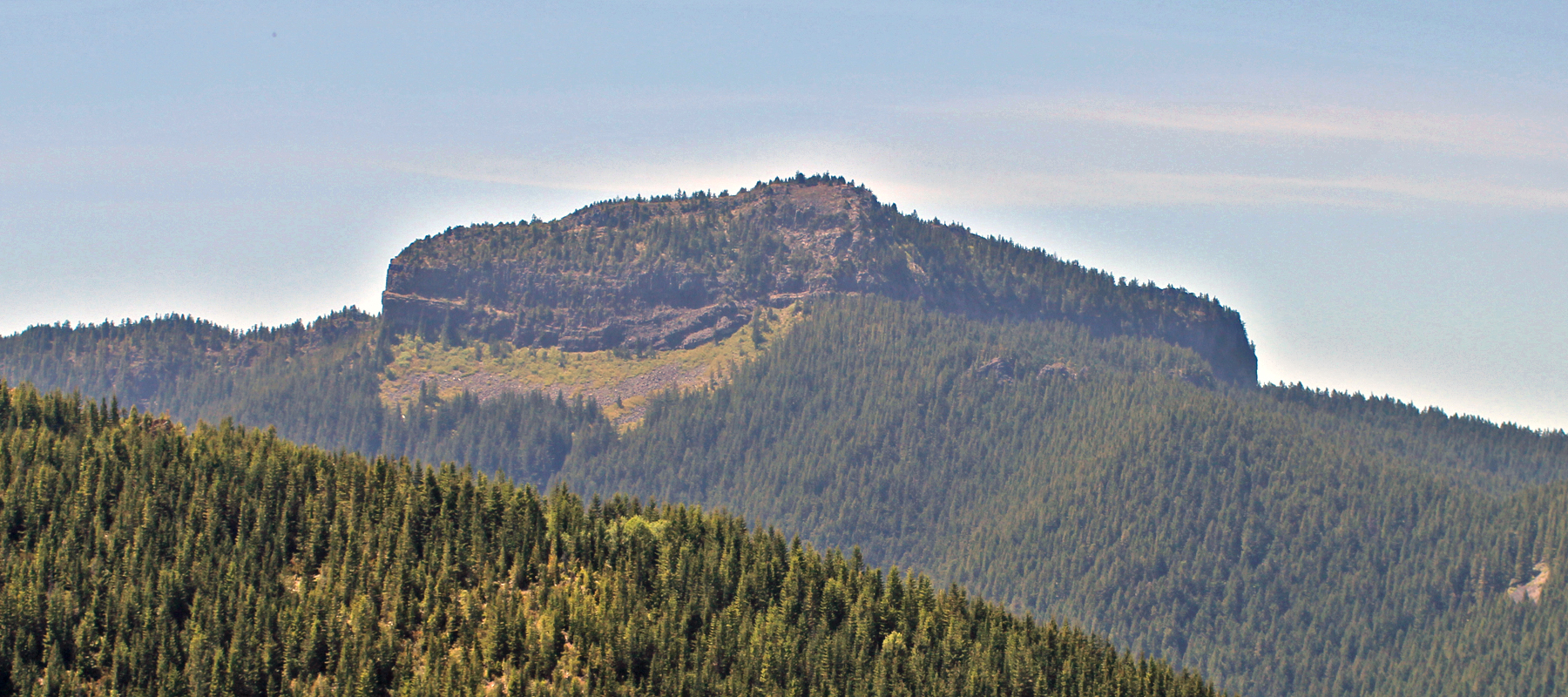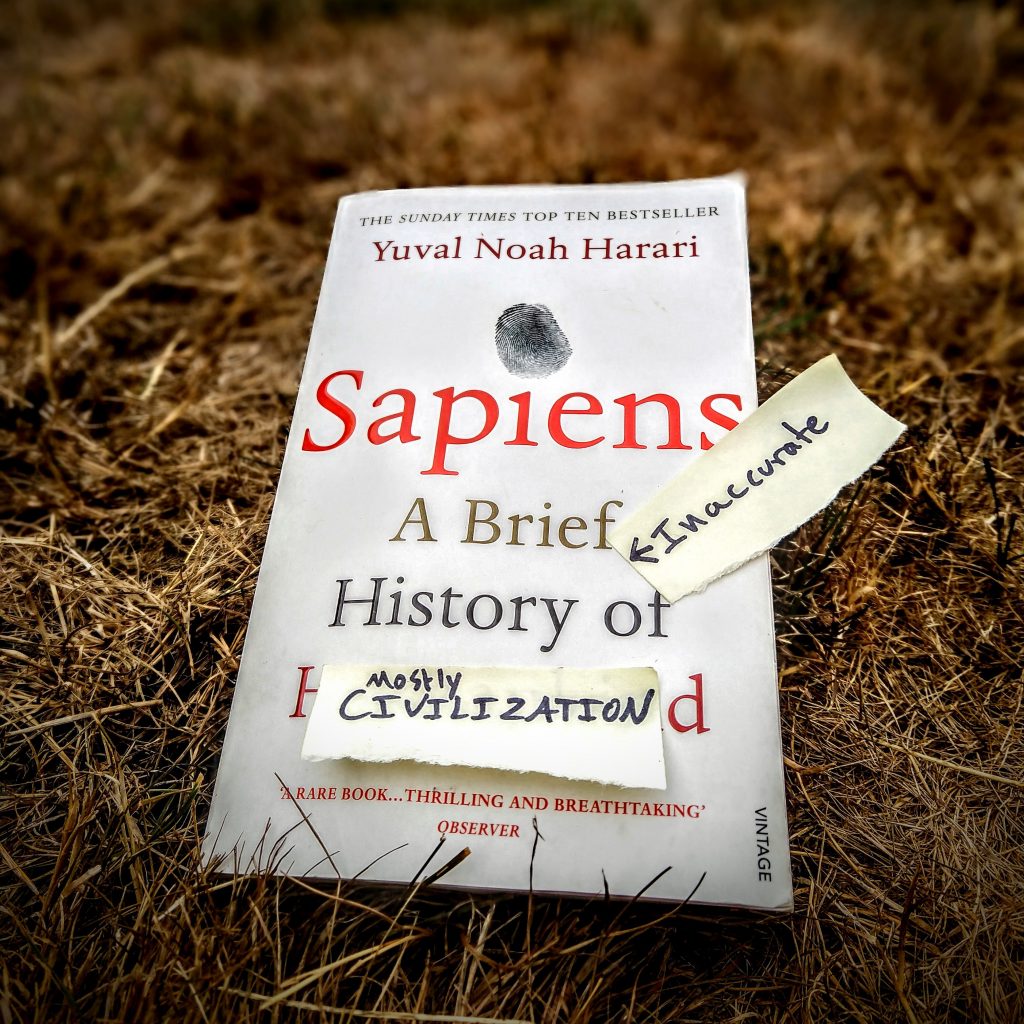Jennifer Grayson recently interviewed me for her Uncivilize Podcast. We talked about some very important issues in rewilding. Check it out:

rewilding author, teacher, & catalyst

Jennifer Grayson recently interviewed me for her Uncivilize Podcast. We talked about some very important issues in rewilding. Check it out:

Anarchy is a central component to the rewilding movement, and as such it is here that I wanted to place my first interview. Today I’m chatting with Kevin Tucker, an anarchist writer, editor, and publisher who has been writing about primal anarchy for over twenty years. He is the author of the book For Wildness and Anarchy, which has been foundational to anarcho-primitivism and primal anarchy. He is relentless. He runs a publishing company, hosts a podcast, writes extensively well researched books, publishes Wild Resistance (a primal anarchy journal twice a year) and somehow raises two children all at the same time. Kevin is both a friend and colleague who continues to inspire and inform the work that I do. I’m excited to share the interview here with you.
Follow Kevin on Social Media:
instagram
twitter
facebook
Follow Kevin’s Work:
Kevin Tucker Website
For Wildness and Anarchy Book
Primal Anarchy Podcast
Items mentioned during our conversation:
Interview with John Zerzan
Mutual Aid – Petr Kropotkin
“Woman the Gatherer”
Domestication of the Human Species – Peter Wilson
Header Image: https://www.flickr.com/photos/eflon/3261945045/

In this introductory episode, I talk about my story: who I am, where I came from, and what rewilding means to me. This episode sets the context in which the rest of this podcast will reside.
Resources:
Rewild or Die by Urban Scout (My moniker)
Press Interviews over the last 13 years
Tom Brown Jr.
Ishmael by Daniel Quinn
Coyote Tracks
Jon Young’s 8 Sheild’s Mentoring
Wilderness Awareness School
Green Anarchy Magazine
rewild.com
Rewild Portland

For a while now people have been recommending the book “Sapiens.” So I looked it up. As I glanced over it I realized I that I have a methodology and order for how I grade a book before I decide to read it. Here is the process I go through in order to decide whether or not to read a book. In this case, Sapiens.
I had the pleasure of chatting with John Zerzan this week on Anarchy Radio. I had a lot more to say, but an hour goes by so fast. Any time I do a public interview these days I am afraid I will say the “wrong” thing or leave out an important tangent or core principle, or not say something crystal clear enough, and then folks will jump on it to attack me for saying/not saying something. After the interview I was tossing and turning all night thinking, “Oh no, I should have said this or that!” Oh well! That old picture though. 😆 Listen Here: Anarchy Radio w/ John Zerzan
/s3.amazonaws.com/arc-wordpress-client-uploads/wweek/wp-content/uploads/2019/01/07171052/dish_Roadkill_RickVodicka_4511.jpg)
The Willamette Week called me to talk about the new roadkill law in Oregon, and asked me to share some tips for picking up and preparing it.
I’ve had many feelings about ayahuasca over the years; curiosity, indifference, repulsion. In reading The Cull of Personality, I realized that my perception of ayahuasca was all wrong: my feelings about the plant and the psychoactive spiritual communities and industries that surround it don’t matter. I shouldn’t be thinking about how I feel about it, I should be thinking about how the people of the place where it originates feel about it. It’s too easy, sitting in a place of relative “comfort” as a white American male, to forget that colonization is an ongoing process, a living history in which we are all active agents. In The Cull of Personality, Kevin Tucker brilliantly illustrates the consequences of such blindness exemplified in the recent rise of ayahuasca tourism in South America. This book takes the reader on an historical journey through Peru, bending time and space, showing the threads that overlap the past with the present. It sits as a reminder of how civilization is just one devastating blow after the next to indigenous people everywhere, and always comes under the guise of salvation from the colonizer. In the past it was saving souls by missionaries, in the present it’s white people wanting their own souls saved-and perhaps conscience-through the use of traditional plant medicines. This book is a must read for anyone who has ever mentioned an interest or partaken in the consumption of ayahuasca. Get your copy today.
Recently I heard they are tearing down one of my high schools and rebuilding it. The new principal is asking alumni to send in stories about their experiences there. Mine happened to be relatively unique, and not particularly peachy. I’m not really an alumni, as I never graduated high school, but my story is a deep part of the history there. I wrote this bit a few years ago and thought that since they are seeking stories about the history of the school, and since this is an important one that shaped who I am and one that I’ll never forget, I should post it.
As I have been super busy teaching and doing admin for Rewild Portland, I haven’t done any interviews in a little while. This one was such a pleasure, and I have to say that I think this may be my best interview yet. I really feel proud of this one, and am beaming with gratitude for all the people who I have learned from and have influenced me. Mad props to Sam for working through this himself (warts and all), and elevating the visibility of these issues that rest at the core of the rewilding movement. Check out the interview and explore Sam’s work.

In the seventies, the ancestral skills community was created and informed by the field of experimental archaeology. These academics began to catalog, preserve, and teach ancestral technology for future generations to learn from and understand. The first time I really heard the term “abo” (shorthand for aboriginal) was at Rabbitstick Rendezvous, the oldest, most renowned and celebrated ancestral skills gathering in the United States. All other gatherings of this kind have been initially inspired by Rabbitstick. Here, the late Steve Watts taught a class he called Abo 101. This phenomenal class took people through the origins and evolution of humanity through a full-bodied learning experience. Many people say this class changed their lives, and it was pretty much a requirement for newbies at Rabbitstick. There was no, and still is no, ill intent by these communities in the usage of the word “abo.” This word fell into use among a predominantly white, male group of ancestral skills enthusiasts, in North America, in an era long before the internet. Mass culture, international culture, was not something at everyone’s fingertips. Native Americans had just been granted the right by the US Government to practice their religions once more.
Today, 30+ years later, the context we live in is both similar and completely different. The internet has been an amazing tool to connect people across the world. It has also made us more aware of oppression in other parts of the world, and the different use of words and language in those parts. It wasn’t until I was at Echoes in Time (another ancestral skills gathering that I now facilitate) when I learned the other meaning behind the word “abo.” A group of friendly people performed a classic campfire song, “If I were not a…” and used the word “abo.” After singing it, there was a suggestion of sharing the lyrics on the website for other ancestral-skills-inspired groups to enjoy. It was then that one of the experienced women teachers spoke up and explained to everyone that “abo” was the most racist word used toward indigenous Australians, akin to the “n” word used toward African Americans, or inj*n or redsk*ns to Native Americans. In the work that she does with international indigenous people, it would ruin her reputation being associated with lyrics such as that. It wasn’t that they had ill intent—far from it. They were super great people, and were just having a fun time and wanting to share that with others. It’s that they were uninformed, and this ignorance would cause pain for indigenous people, who we have learned many ancestral skills from, and who deserve respect. Who wants to cause them any more pain?
This is the contemporary context we live in: an international, English-language community via the internet. People come to ancestral skills gatherings from all over the world. Any online class or program reaches everyone in the world. We are currently living in a global context. What this means is that if you use that word, you are excluding an entire continent of indigenous people from participating in the ancestral skills and rewilding communities. Indigenous solidarity means that indigenous people band together across cultural lines, and around the world, to fight against oppression. This means that if you are excluding an entire continent of indigenous people by your use of a racist word, because of indigenous solidarity, you are excluding all indigenous people. Rewilding is a movement in solidarity with indigenous people. By using this word in a rewilding context, it makes rewilding look like an exclusionary practice that is comfortable taking from indigenous people, but not making a welcoming environment for them. Using the most racist word makes it a hostile environment for them.
As rewilding grows to include more people, we need to make sure that those people are informed and educated to the actual goals of rewilding. It is up to us to make rewilding as accessible and welcoming to as many people as we possibly can so that it will continue to grow and take hold. At its best, continuing to use the word “abo” is just really, really bad marketing. At its worst it serves to make rewilding look like a thing for ignorant white people. I love Steve Watts’ work, and others who came before me in the ancestral skills community. This has nothing to do with them, or the context in which the words gained popularity. It has everything to do with where we are now in this time and place. The word “primitive” is a similar example; people have discarded it in favor of “ancestral skills” because of the pejorative history of its use. This isn’t about being PC, it’s about being a nice person and not wanting to hurt other people with your words, or remind them of the hundreds of years of genocide and continued occupation of their people and lands. It’s a common courtesy. “Abo,” like “primitive,” is such an ingrained word with many of the old-timers, that I don’t think it will go away over night. In a person-to-person context it doesn’t hold the same kind of weight that it does online or in an official capacity. I still use the word “primitive” from time to time, mostly out of old habits or sometimes if people don’t understand the rebranded “ancestral skills.” Language changes over time, and rather than expect an oppressed minority (or those in solidarity with them) to change their own language and be more accepting of racial slurs, as white people with privilege, the need for decency and responsibility falls to us. We must abide by their wishes and cease using language that is tied directly to their historic and current oppression.
…It’s actually the absolute, very least we can do.
***UPDATE***
While using the term “abo” is racist in a global context like the internet, using the term “neoaboriginal” is problematic as well (I’ve also seen it shortened to “neoabo”). It’s no different from saying “neonative” or “neoindigenous.” It’s whiteness usurping the identity of a minority. I don’t condone either. While rewilding is about becoming place-based (one meaning of the word “indigenous”), we live in a context where identity and the language around it is important for minority groups. It dilutes their struggle when their descriptors are appropriated. To build allyship, to begin to collaborate, we can easily pick and choose language that isn’t offensive or appropriative on many levels. It’s really not hard. When crafting language as rewilders we need to do more research into etymology, current contexts, and differing communities. “Limitation creates art.” Compassion creates community. Roll up your sleeves and get to work.
• ‘Abo’ is not just an abbreviation of ‘Aboriginal’
• Don’t call me ‘Abo’
• Tourism body apologises for ‘Abo’ gaffe
• ANISHINABEK OUTLAW TERM ‘ABORIGINAL’
 Ricardo Sierra from Hawk’s Circle interviewed me for his Wolverine Way podcast series. We talk about running small businesses that are ancestral skills themed. [Listen Here]
Ricardo Sierra from Hawk’s Circle interviewed me for his Wolverine Way podcast series. We talk about running small businesses that are ancestral skills themed. [Listen Here]